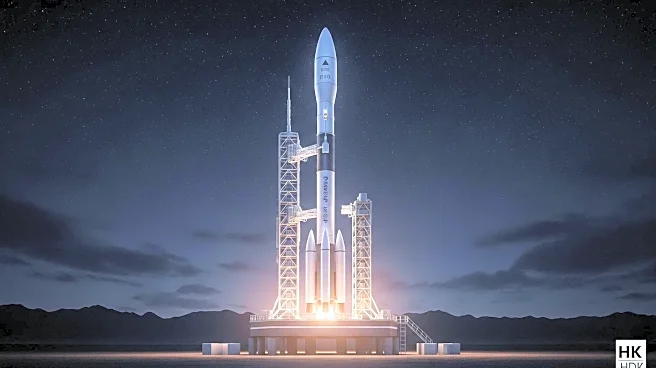What's Happening?
SpaceX has scheduled the eleventh flight test of its Starship spacecraft for October 13, 2025, at 6:15 PM local time from its Starbase facility in Texas. This test is part of SpaceX's ongoing efforts to develop the world's first fully reusable launch vehicle, with the ultimate goal of enabling Mars-bound missions. The upcoming flight will follow a similar trajectory to previous tests, launching from Texas and splashing down in the Indian Ocean. SpaceX aims to gather data for the next generation Super Heavy booster, stress-test Starship's heatshield, and demonstrate maneuvers that mimic the upper stage's final approach for a future return to the launch site.
Why It's Important?
The development of a fully reusable launch vehicle is a significant milestone in space exploration, potentially reducing costs and increasing the frequency of missions. SpaceX's Starship program is central to its vision of making space travel more accessible and sustainable, with Mars colonization as a long-term goal. Successful tests could accelerate advancements in space technology and inspire further investment in the aerospace sector. The implications extend beyond SpaceX, as reusable rockets could transform the economics of space travel, benefiting scientific research, satellite deployment, and commercial ventures.
What's Next?
Following the eleventh flight test, SpaceX will analyze the data collected to refine the design and functionality of the Starship and its Super Heavy booster. Future tests will likely focus on improving the vehicle's performance and reliability, with the aim of achieving operational status for Mars missions. Stakeholders, including government agencies and private investors, will be closely monitoring these developments, as successful tests could lead to increased collaboration and funding opportunities. The aerospace community will also be keen to see how SpaceX's advancements influence industry standards and practices.
Beyond the Headlines
The pursuit of reusable launch vehicles raises ethical and environmental considerations, such as the impact of increased space traffic and the sustainability of space exploration. As SpaceX progresses, discussions around space governance and international cooperation may gain prominence, addressing issues like space debris and planetary protection. The cultural impact of potential Mars colonization could also spark debates on human expansion beyond Earth, challenging existing paradigms of exploration and habitation.









